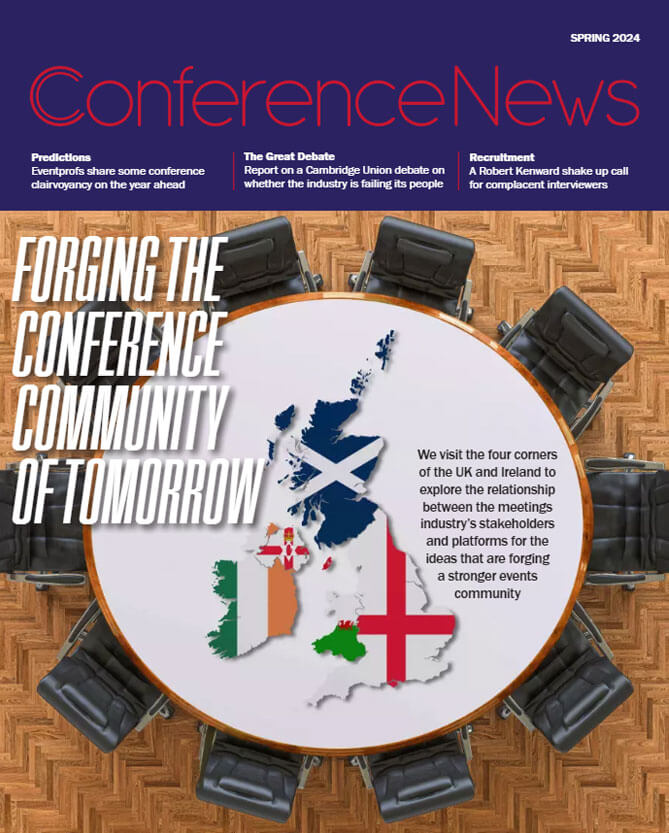Every step we take leaves a mark. Every action, intentional or not, impacts the world around us. At the intersection of awareness and intention, lies our impact. Our footprint reminds us of our past, our handprint drives positive change, and our brainprint shapes the future. These are some of the thoughts of Marina Bradford, founder, and managing director of Bemari and director of Terraverde Solutions who identified the best practices towards shaping sustainable events in her session at Meet Cambridge’s sustainability summit at Jesus College in Cambridge.
Understanding sustainability is acknowledging that it is not solely about the planet but also about people. A sustainable event involves smart resource use, low-impact catering, ecological change, cleaner journeys, governance and partnerships, site appreciation, accessibility, zero waste, and positive legacy. These factors can be classified into environmental, social, advocacy, and governance groups, according to Bradford.
She believes the essential tools for a sustainable event include managing impact through control or influence and shaping behaviours, which link to three elements: footprint, handprint, and brainprint. The footprint represents an organisation’s unintentional impact (usually negative) on people and the environment, ranging from carbon emissions to poor working conditions. The handprint results from intentional efforts to create positive change for people and the environment, including actions like reforestation and enhanced biodiversity. The brainprint encompasses the intentional or unintentional messages an organisation sends into the world through its actions, choices, and influence on others’ behaviours, values, and perceptions. The footprint makes us think about what we leave behind, the handprint about the positive change we create, and the brainprint about the messages people take away from our events.
To illustrate human behaviour and sustainability, Bradford used the ‘Ladder of Intervention’ to emphasise that change revolves around people’s behaviours and that we can be more effective if we put people at the centre of the problem-solving process. The ‘Ladder of Intervention’ includes eight main points: eliminate choice (top of the ladder), restrict choice, disincentivise choice, incentivise choice, shift default choice, create new choice, clarify choice, and monitor choice.
Focusing on the ‘shift default choice’ step of the ladder, Bradford outlined that by removing choice, sustainability becomes the only option, providing infrastructure to normalise behaviour. For example, eliminating single-use choices without compromising the experience and offering an organic, delicious, and vegetarian core menu alongside a pre-ordered menu reduces food waste while setting clear expectations for attendees. They can always ask for meat or specify their preferences in advance. This shifts the default choice, making the sustainable option attractive and the new normal.
When analysing the ‘Ladder of Intervention’, it’s essential to ask whose behaviour we are trying to change. Is it event attendees, suppliers, key partners and speakers, sponsors, catering support, or the industry itself? Bradford also highlighted that behaviour is group-based (‘I will if you will’), norms-based (‘I will if it’s how everyone normally does it’), infrastructure-based (‘I will if I can/if it’s easy’), and values-based (‘I will if it matters to me’).
Bradford concluded her session by saying that sustainability isn’t about saving the planet; it’s about people. In the corporate space, we must be able to maintain the lifestyle we want while ensuring that future generations can enjoy the same. Once we understand how people work and the psychology of human behaviour, we can move toward sustainability in events. Sustainability is about doing less harm and more good, improving what we have, and ensuring its continuation.
Pictured: Marina Bradford at Meet Cambridge’s sustainability summit ‘Shaping Sustainable Events’ at Jesus College, Cambridge.















